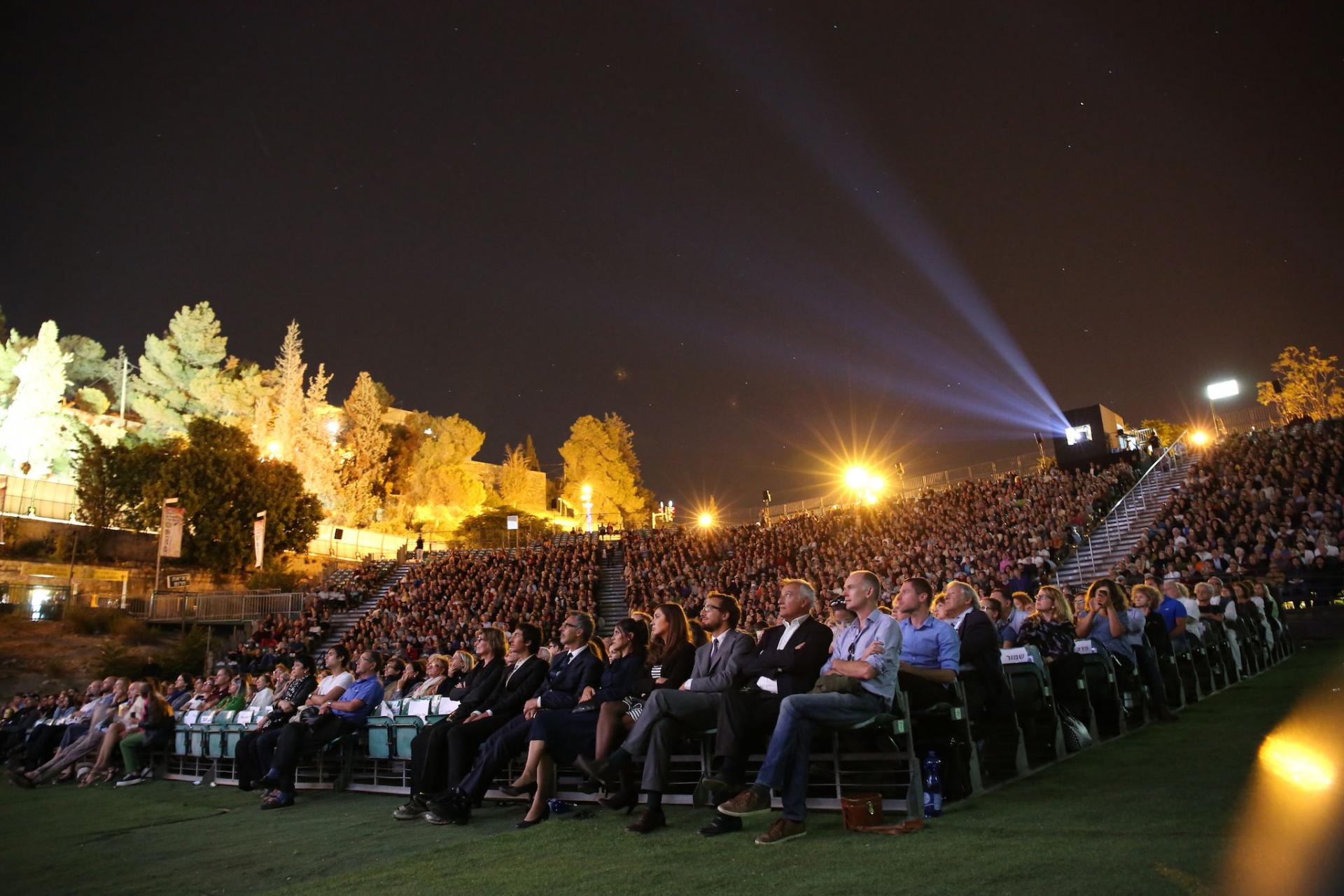On May 17, 1984, Le Bal, directed by Ettore Scola, opened the first Jerusalem Film Festival. Over the course of three weeks, about 100 films were screened, including Israeli premieres, alongside the year’s best selection of international films. In addition, a distinguished group of guests honored the first festival, among them, the First Lady of Silent Film, Lillian Gish, as well as Jeanne Moreau, Warren Beaty, and John Schlesinger.
Since then, and throughout the 1980s, the Festival's spirit matured into its present form: a cinematic event spanning around 10 days, screening between 150-200 films, reflecting the best of films from the past year. The program emphasizes bold cinematic achievements, exciting works by new directors, the latest contributions by contemporary masters of cinema, films concerned with questions of freedom and human rights, the history and tradition of the seventh art, and of course, Israeli film.
From its inception, the Festival has dedicated a central and unique place to Israeli cinema, premiering features, documentaries, and shorts. In 1989, the Festival granted an official stamp of validity to Israeli cinema with the introduction of the Wolgin Competition, which became the leading platform to showcase the majority of the most important Israeli films of the year. In time, additional Israeli film prizes became part of the Festival, and the Haggiag Family Awards Competition – which replaced the Wolgin Awards in 2010 – became the largest and most esteemed stage for presenting local films in Israel.
Beyond its contribution to Israeli film, the Jerusalem Film Festival is the leading platform in Israel for presenting the world’s finest contemporary cinematic trends to its local audiences. Over the years, the Festival has screened film debuts by Wong Kar Wai, Tsai Ming-liang, John Sayles, Jim Jarmusch, Stephen Frears, Spike Lee, Quentin Tarantino, Nuri Bilge Ceylan, and others that have turned into masters of our time. Many of these directors have kept showcasing their work at the Festival, and have become personal favorites with the Israeli audience.
An impressive and exciting group of guests has blessed us with their presence, among them: Lillian Gish, Jeanne Moreau, Warren Beaty, Marcello Mastroianni, Robert De Niro, Paolo and Vittorio Taviani, Chantal Akerman, Mike Leigh, Alan Corneau, Susanne Bier, Krzysztof Kieslowski, Nanni Moretti, Anouk Aimée, Fanny Ardant, Roberto Benigni, Jane Birkin, Roger Corman, Kirk Douglas, Jean-Pierre and Luc Dardenne, Steven Frears, Jane Fonda, Michael Haneke, Bob Hoskins, Otar Iosseliani, Henry Jaglom, Benoit Jacquot, Chen Kaige, Marin Karmitz, Elia Kazan, Ang Lee, Errol Morris, Claude Lelouch, Dusan Makavejev, Terrence Malick, John Malkovich, David Mamet, Chris Marker, Rashid Mashrawi, Deepa Mehta, Anthony Minghella, Manoel de Oliveira, Nagisa Oshima, Ulrike Ottinger, Roman Polanski, Sally Potter, Francesco Rosi, John Schlesinger, Ettore Scola, Elia Suleiman, Bertrand Tavernier, Guiseppe Tornatore, Liv Ullman, Margarethe von Trotta, Wim Wenders, Michael Winterbottom, Richard Linklater, Spike Jonze, and many more dignitaries have brought their stardust, charisma, and wisdom to the Festival.
Beginning with the 1990s, the Festival has been growing and spreading its wings. It has reached out to a wide range of audiences: from the glamorous outdoor opening night at the Sultan’s Pool, where 5,000 spectators celebrate the beginning of the Festival, through avant-garde and innovative works, to professional events catering to the international film industry.
Nowadays, the July Festival spans 11 days, offering a rich and varied program with more than 200 films. These are showcased through numerous competitive and non-competitive sections: Gala Screenings, Israeli Cinema Competitions, International Debuts Competition, In the Spirit of Freedom Competition, Contemporary Masters of Cinema, Panorama, Classics and Restored Films, Jewish Experience, Intersections Program for Experimental Cinema and Video Art, Cinemania, and as from 2016, a competition for International Features.
Alongside the Festival program, the JFF holds professional events for Israeli and international film industry members, led by the Jerusalem Pitch Point. The JPP offers a meeting place for Israeli filmmakers and producers with key-members from the international film industry, thus encouraging and promoting international co-productions of Israeli feature projects in development or in post-production. The Festival also initiates various workshops and professional master classes, and hosts the Sam Spiegel International Film Lab, which holds its final pitching and various events in the framework of the Festival.
This variety of events has gradually turned the Jerusalem Film Festival into the most important cinematic gathering in Israel.
